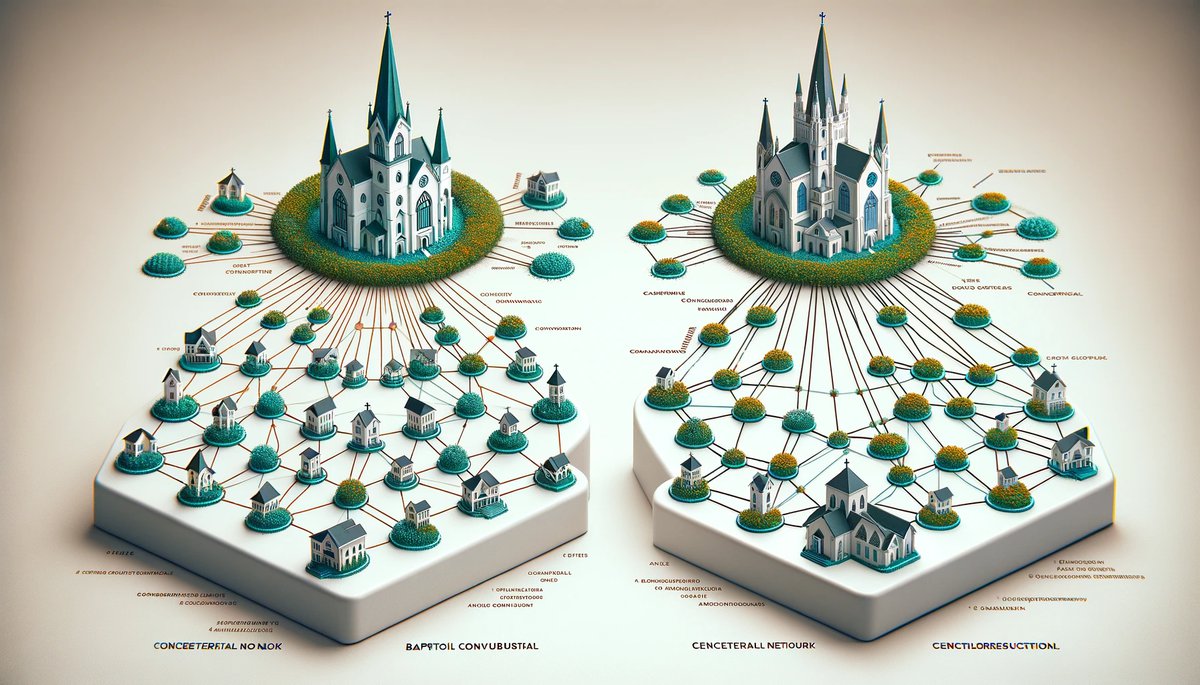Home>Theology and Spirituality>What Is The Difference Between Atonement And Forgiveness


Theology and Spirituality
What Is The Difference Between Atonement And Forgiveness
Published: February 10, 2024
Peter Smith, Editorial Director at Christian.net, combines deep insights into faith, politics, and culture to lead content creation that resonates widely. Awarded for his contributions to religious discourse, he previously headed a major organization for religious communicators, enhancing dialogue on faith's societal impacts.
Discover the distinction between atonement and forgiveness in theology and spirituality. Explore the significance and implications of each concept. Gain a deeper understanding today.
(Many of the links in this article redirect to a specific reviewed product. Your purchase of these products through affiliate links helps to generate commission for Christian.net, at no extra cost. Learn more)
Table of Contents
Introduction
In the realm of theology and spirituality, the concepts of atonement and forgiveness hold profound significance. These two principles are fundamental to various religious traditions and have a profound impact on the beliefs and practices of their adherents. Understanding the difference between atonement and forgiveness is crucial for anyone seeking spiritual enlightenment and a deeper connection with their faith.
Atonement and forgiveness are often intertwined, yet they represent distinct aspects of spiritual and moral reconciliation. While forgiveness involves pardoning someone for a wrongdoing and releasing the associated resentment or anger, atonement delves into the process of making amends or seeking reparation for one's transgressions. Both concepts are deeply rooted in the human experience, reflecting the universal yearning for redemption and restoration.
Exploring the nuances of atonement and forgiveness can shed light on the intricate dynamics of human relationships, personal growth, and the pursuit of spiritual harmony. By delving into these concepts, individuals can gain valuable insights into the nature of compassion, empathy, and the transformative power of grace.
In this article, we will embark on a journey to unravel the essence of atonement and forgiveness, delving into their meanings, implications, and the pivotal role they play in various religious and ethical frameworks. By examining the key differences between atonement and forgiveness, we aim to illuminate their distinct contributions to the human experience and the pursuit of spiritual fulfillment. Furthermore, we will explore the significance of these concepts in fostering healing, reconciliation, and the cultivation of virtues such as humility, empathy, and resilience.
Join us as we navigate the intricate tapestry of atonement and forgiveness, unraveling their profound implications and unveiling the transformative potential they hold for individuals and communities alike. Through this exploration, we endeavor to cultivate a deeper understanding of these timeless principles and their enduring relevance in the human quest for meaning, redemption, and spiritual wholeness.
Understanding Atonement
Atonement, a concept deeply embedded in religious and ethical traditions, encompasses the process of reconciling for one's transgressions or wrongdoings. It involves seeking reparation, making amends, and striving to restore harmony in relationships, both with the divine and with fellow beings. The notion of atonement is rooted in the recognition of human fallibility and the acknowledgment of the need for redemption and restoration.
In many religious traditions, atonement is intricately linked to the concept of divine justice and mercy. It reflects the belief that individuals are accountable for their actions and that the pursuit of atonement is essential for seeking reconciliation with the divine and achieving spiritual wholeness. The process of atonement often involves sincere repentance, self-reflection, and a genuine commitment to rectifying the harm caused by one's actions.
Atonement also embodies the profound human yearning for moral and spiritual renewal. It signifies the transformative journey from moral failure to ethical rectitude, from discord to reconciliation, and from spiritual estrangement to divine communion. The pursuit of atonement is a testament to the resilience of the human spirit and the capacity for moral growth and transformation.
Moreover, the concept of atonement underscores the interconnectedness of individuals within their communities and the broader human family. It emphasizes the responsibility to repair the fabric of social relationships and contribute to the collective well-being. Atonement, therefore, extends beyond personal redemption to encompass the restoration of social harmony, justice, and compassion within the broader societal context.
In essence, understanding atonement entails recognizing the multifaceted dimensions of human fallibility, moral accountability, and the transformative potential of seeking reconciliation and restoration. It embodies the profound yearning for spiritual renewal, ethical rectitude, and the restoration of harmonious relationships within the intricate tapestry of human existence. Atonement stands as a testament to the enduring human capacity for moral growth, resilience, and the pursuit of spiritual wholeness.
Understanding Forgiveness
Forgiveness, a cornerstone of many spiritual and ethical traditions, embodies the act of pardoning someone for a wrongdoing and releasing the associated resentment or anger. It transcends mere absolution and encompasses a profound transformation of emotions, attitudes, and relationships. At its core, forgiveness reflects the innate human capacity for empathy, compassion, and the transcendence of grievances.
The essence of forgiveness lies in the liberation it offers, both to the forgiver and the forgiven. By extending forgiveness, individuals relinquish the burden of carrying resentment and animosity, freeing themselves from the corrosive effects of bitterness and anger. This act of emotional liberation fosters inner peace, healing, and the restoration of personal well-being. Moreover, forgiveness enables individuals to transcend the cycle of retribution and vindictiveness, paving the way for reconciliation and the cultivation of empathy and understanding.
Forgiveness also holds transformative power in interpersonal relationships and communal dynamics. It serves as a catalyst for healing rifts, restoring trust, and fostering reconciliation. By extending forgiveness, individuals contribute to the cultivation of empathy, understanding, and the restoration of harmonious relationships. Furthermore, forgiveness embodies the recognition of human fallibility and the acknowledgment of the potential for moral growth and redemption.
In the realm of spirituality, forgiveness embodies the embodiment of divine grace and mercy. It reflects the profound belief in the capacity for moral renewal, the transcendence of human frailty, and the restoration of spiritual wholeness. The act of forgiveness mirrors the divine attributes of compassion, empathy, and the transformative power of grace, underscoring the profound connection between forgiveness and spiritual enlightenment.
Understanding forgiveness entails embracing the transformative potential of compassion, empathy, and the liberation from the shackles of resentment and bitterness. It embodies the recognition of the human capacity for moral growth, the restoration of relationships, and the pursuit of spiritual harmony. Through forgiveness, individuals embark on a journey of healing, reconciliation, and the cultivation of virtues such as empathy, resilience, and the transformative power of grace.
Key Differences Between Atonement and Forgiveness
-
Nature of Action:
- Atonement primarily focuses on the process of seeking reparation and making amends for one's transgressions. It involves acknowledging responsibility for one's actions and actively working towards reconciliation and restoration. In contrast, forgiveness centers on pardoning someone for a wrongdoing and releasing the associated resentment or anger. It entails a profound transformation of emotions, attitudes, and relationships, emphasizing the liberation from the burden of bitterness and animosity.
-
Direction of Emphasis:
- Atonement places emphasis on the individual's proactive efforts to seek reconciliation and restoration, both in personal relationships and within the broader societal context. It involves sincere repentance, self-reflection, and the commitment to rectifying the harm caused by one's actions. On the other hand, forgiveness directs its focus on the act of pardoning and releasing resentment. It embodies the transcendence of grievances and the liberation from the corrosive effects of bitterness and anger.
-
Relational Dynamics:
- Atonement is deeply intertwined with the dynamics of reconciliation and restoration within interpersonal relationships and communal settings. It underscores the responsibility to repair the fabric of social relationships and contribute to the collective well-being. In contrast, forgiveness serves as a catalyst for healing rifts, restoring trust, and fostering reconciliation. It embodies the recognition of human fallibility and the acknowledgment of the potential for moral growth and redemption.
-
Spiritual Significance:
- Atonement holds profound spiritual significance, reflecting the belief in the accountability for one's actions and the pursuit of reconciliation with the divine. It embodies the transformative journey from moral failure to ethical rectitude, from discord to reconciliation, and from spiritual estrangement to divine communion. Conversely, forgiveness embodies the embodiment of divine grace and mercy, reflecting the profound belief in the capacity for moral renewal, the transcendence of human frailty, and the restoration of spiritual wholeness.
-
Cultural and Ethical Context:
- Atonement and forgiveness are deeply rooted in various cultural and ethical contexts, shaping the moral frameworks and practices within different religious traditions and philosophical perspectives. While atonement underscores the multifaceted dimensions of human fallibility, moral accountability, and the transformative potential of seeking reconciliation and restoration, forgiveness embodies the transformative potential of compassion, empathy, and the liberation from the shackles of resentment and bitterness.
In essence, the key differences between atonement and forgiveness lie in their distinct focuses, relational dynamics, spiritual significance, and cultural and ethical contexts. While atonement centers on the proactive pursuit of reconciliation and restoration, forgiveness embodies the transformative power of pardoning and releasing resentment, fostering healing, and cultivating empathy and understanding. Both concepts, though distinct, play pivotal roles in the human quest for moral growth, reconciliation, and spiritual wholeness.
The Importance of Atonement and Forgiveness
The significance of atonement and forgiveness transcends mere theological or philosophical discourse; it permeates the very fabric of human experience, shaping individual and collective destinies in profound ways. These timeless principles hold immense importance in fostering healing, reconciliation, and the cultivation of virtues essential for personal and communal well-being.
Atonement plays a pivotal role in acknowledging human fallibility and the moral accountability inherent in our actions. By embracing the process of seeking reparation and making amends, individuals embark on a transformative journey of self-reflection, humility, and ethical rectitude. The act of atonement fosters a profound sense of responsibility towards repairing the fabric of social relationships and contributing to the collective well-being. It embodies the resilience of the human spirit and the capacity for moral growth, reconciliation, and the pursuit of spiritual wholeness.
Similarly, forgiveness holds immense importance in transcending the cycle of resentment, bitterness, and animosity. By extending forgiveness, individuals liberate themselves from the burden of carrying grudges and grievances, fostering inner peace, healing, and the restoration of personal well-being. Moreover, forgiveness serves as a catalyst for healing rifts, restoring trust, and fostering reconciliation within interpersonal relationships and communal dynamics. It embodies the recognition of human fallibility and the acknowledgment of the potential for moral growth and redemption.
Furthermore, both atonement and forgiveness play a crucial role in shaping the ethical and moral landscapes of societies. They contribute to the cultivation of empathy, compassion, and the restoration of harmonious relationships within communities. These principles serve as pillars of ethical conduct, guiding individuals and communities towards a path of healing, reconciliation, and the pursuit of justice and compassion.
In essence, the importance of atonement and forgiveness lies in their transformative power to heal wounds, restore relationships, and cultivate virtues such as empathy, resilience, and the transformative power of grace. These principles resonate deeply with the universal human yearning for redemption, restoration, and the pursuit of spiritual and moral wholeness. Embracing atonement and forgiveness not only enriches individual lives but also fosters a more compassionate, empathetic, and harmonious society, laying the foundation for a world imbued with grace, reconciliation, and ethical rectitude.
Conclusion
In conclusion, the concepts of atonement and forgiveness stand as profound pillars of spiritual and ethical significance, shaping the moral landscapes of diverse religious traditions and philosophical perspectives. Atonement embodies the transformative journey of seeking reparation and making amends, reflecting the human capacity for moral growth, reconciliation, and the pursuit of spiritual wholeness. On the other hand, forgiveness transcends the cycle of resentment and bitterness, fostering healing, reconciliation, and the restoration of harmonious relationships.
The key differences between atonement and forgiveness lie in their distinct focuses, relational dynamics, spiritual significance, and cultural and ethical contexts. While atonement centers on the proactive pursuit of reconciliation and restoration, forgiveness embodies the transformative power of pardoning and releasing resentment, fostering healing, and cultivating empathy and understanding. Both concepts, though distinct, play pivotal roles in the human quest for moral growth, reconciliation, and spiritual wholeness.
The importance of atonement and forgiveness extends beyond theological discourse, permeating the very fabric of human experience and shaping individual and collective destinies in profound ways. These timeless principles foster healing, reconciliation, and the cultivation of virtues essential for personal and communal well-being. They contribute to the cultivation of empathy, compassion, and the restoration of harmonious relationships within communities, serving as pillars of ethical conduct and guiding individuals and societies towards a path of justice, compassion, and grace.
Embracing atonement and forgiveness enriches individual lives and fosters a more compassionate, empathetic, and harmonious society. These principles resonate deeply with the universal human yearning for redemption, restoration, and the pursuit of spiritual and moral wholeness. As we navigate the intricate tapestry of atonement and forgiveness, we are reminded of the enduring relevance of these principles in the human quest for meaning, redemption, and spiritual harmony. Through atonement and forgiveness, individuals and communities alike can embark on a transformative journey towards healing, reconciliation, and the cultivation of virtues that transcend the boundaries of time, culture, and belief.














